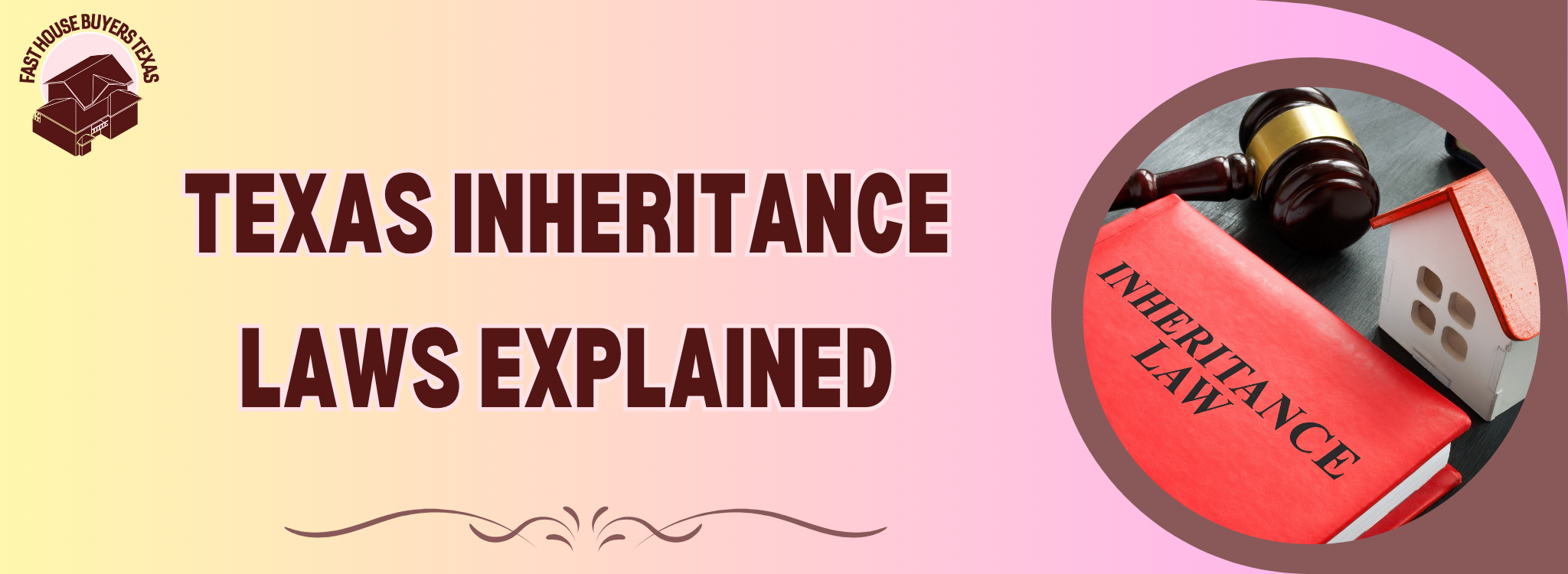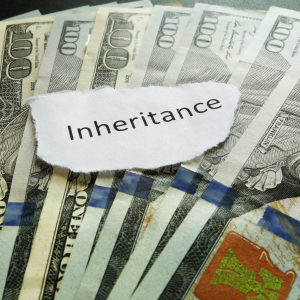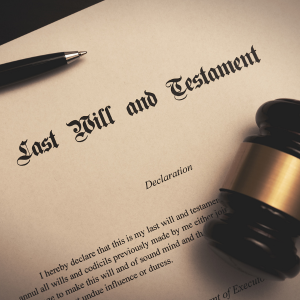
Introduction to Texas Inheritance Laws

Anyone who is planning an estate or dealing with the distribution of assets after a loved one’s death, including selling an inherited house in Harlingen or any other city in Texas, needs to know about Texas inheritance rules. These laws are very important for making sure that estates are distributed smoothly and in line with the wants of the person who died or state laws. New changes to these laws have made the rules clearer, which has a big effect on how estates are handled and makes sure that beneficiaries and heirs get what is truly theirs.
This guide will talk about the newest changes to the law and give you a thorough look at your Texas property rights. Its goal is to help you understand the complicated world of Texas inheritance so that you can follow the new rules and look out for the best interests of your husband, children, and other family members. Our all-around method will make it easier to understand these complicated laws, giving people the power to plan and carry out their estates in a way that protects loved ones’ legacy and keeps the peace in the family.
Recent Changes in Texas Inheritance Regulations
Inheritance rules in Texas have changed a lot in the past few years. This is because lawmakers have made changes that they hope will make the process easier and clearer. These changes are very important for people who live in farms and plan and run them. Its main goal is to protect the rights of children and beneficiaries while lowering the chances of disagreements over how to distribute assets. One important change is the one that affects spouse rights when someone dies without a will. Previously, this made it harder to divide up assets, which often led to arguments between family members who are still alive. Community property rules say that when someone dies without a will, their spouse usually gets most of their estate. This is because of recent changes to the law that make the process easier. This new law makes it more important for people to understand and accept the role of community property in planning and distributing an estate.
Furthermore, Texas has introduced new guidelines on managing digital assets, reflecting the state’s responsiveness to contemporary issues in estate management. Digital assets, including social media accounts, online banking information, and digital photographs, are increasingly recognized as valuable estate components. Because these assets are treated by the law the same way real estate is, people need to be very clear about how they want their assets to be distributed in their estate planning papers. By giving these specifics, people can make sure that all of their assets, whether they are digital or physical, are easily transferred to their chosen heirs. This reduces the problems that could come from digital estate misunderstandings.
Another significant shift has focused on procedures designed to prevent inheritance fraud, a move indicative of Texas’s commitment to fairness in estate distribution. New regulations mandate stricter identification and validation processes for heirs, minimizing risks associated with fraudulent claims. Texas courts are now equipped with enhanced tools for verifying claims, fostering a fair distribution of estates. More secure ways to challenge tampered wills make things safer for legal recipients, underlining how important it is to have solid legal systems to safeguard legitimate inheritances.
The emphasis on compliance with these regulations has not only improved procedural clarity but also bolstered the legal rights of individuals operating within the complex framework of Texas inheritance laws. Estate executors and legal professionals must stay informed about these changes, which are crucial for effectively navigating and applying them. The rise in estate-related litigation underscores the need for comprehensive planning and knowledge of current laws to mitigate risks and protect inheritance rights faithfully.
Understanding Inheritance Rights in Texas

Understanding Texas inheritance rights requires knowledge of whether a deceased individual has left behind a will. A will spells out how to give away both real and personal property, making sure that the person who died’s last wishes are carried out correctly. But if someone dies “intestate,” which means they didn’t leave a will, inheritance rules set out a standard way for their assets to be distributed. The effect of these laws is especially evident in the allocation to immediate family members, such as spouses, children, and grandchildren, highlighting Texas’s commitment to preserving familial continuity.
Marriage creates a joint property state in Texas, where assets acquired during a marriage are generally shared equally between spouses. Usually, keeping their portion of the community property at the death of one partner, the remaining spouse usually follows intestacy laws and distributes the deceased’s half based on their will or, without a will. These laws guarantee that the estate distribution process includes every child, from past or present relationships. Emphasizing respect for legal laws protecting community and non-community property, this all-encompassing approach guarantees fair distribution of both to lawful heirs.
Equally important are the rights bestowed upon non-marital children by Texas inheritance law. Like children born from a marriage, these children have strong inheritance rights as long as there is a clear legal link with the deceased. This law issue is the most important thing to keep in mind if you don’t want any unfair treatment when assets are distributed. Adopted children are also treated as biological relatives, which makes sure they get what they’re entitled to in an estate plan. Recognizing these connections is an important part of inheritance rights because it makes sure that everyone is treated fairly and stops beneficiaries from getting into legal fights.
Comprehensive estate planning is essential for individuals who wish to direct their estate distribution, diverging from the default guidelines provided by intestacy laws. Crafting a detailed will or trust assists in outlining specific asset distribution and lessening uncertainties. The expertise of estate planners is invaluable in navigating the intricacies of Texas inheritance law, delivering peace of mind and preserving familial unity amid difficult transitions. Their invaluable guidance ensures compliance with current regulations, fostering a well-structured and legally sound process in executing the decedent’s intentions.
Enlisting the services of estate planning professionals offers tailored guidance that corresponds with individual estate needs, ensuring compliance with current regulations and upholding all legal protocols effectively. This legal expertise guarantees the testator’s objectives are wholly respected, thereby streamlining the administrative processes for grieving families. Informed and proactive planning not only secures rightful claims but also contributes to a smoother administrative process, which is pivotal in maintaining peace and order within families after the loss of a loved one. Under Texas inheritance laws, the best way to protect family interests and secure assets is to fully understand the laws and make a plan.
Does Texas Have an Inheritance Tax or Estate Tax?

Texas holds a distinctive legal position regarding estate tax and inheritance tax, a fact that can often lead to misunderstandings for individuals engaged in estate planning or settlements. When dealing with inheritance, it’s important to know the difference between these two taxes so that you can meet your state and federal financial responsibilities.
This section aims to explain the main differences between the estate tax and the inheritance tax, make it clear what Texas residents’ current tax obligations are, and give people important information that could help them make better estate plans and financial plans, all while getting people ready for possible future changes in the law. By knowing these differences, residents and children can negotiate the complicated world of estate management more easily, making the process clearer and less stressful. Looking into these things not only helps you follow the law, but it also encourages you to make smart financial decisions that can help your taxes.
The Difference Between Estate and Inheritance Taxes
Within the landscape of estate planning, two terms frequently emerge as sources of confusion: estate tax and inheritance tax. Despite their superficially similar appearance, these taxes are fundamentally different in their application and the implications they have on estates and the beneficiaries. The estate tax, to commence with, is a levy placed on the total appraised value of a deceased individual’s estate, applied before any distribution to heirs occurs. This tax is generally assessed by calculating the net value of all the assets held by the deceased, which includes but is not limited to real estate, investments, cash holdings, and personal property. Basically, the estate has to pay the taxes, so it’s very important for managers and planners of estates to plan ahead to lessen the effect on the estate’s finances.

By contrast, the inheritance tax is levied directly on the beneficiaries receiving assets from an estate. In this case, each person who inherits something is responsible for paying any taxes that are due on that part of the estate. This tax rate often changes based on the type of relationship between the person who is inheriting the estate and the person who is donating the estate. Close family members, like children or spouses, may get preferential, lower tax rates, while distant relatives or people who are not related to the person who is inheriting the estate may have to pay higher taxes. It is imperative to recognize that this tax is calculated based on the monetary value of the inheritance received by the individual heir, rather than the total value of the estate. This can make it harder for beneficiaries to plan their finances, so they need to carefully think about how much their gift will be worth after taxes.
These distinctions carry significant implications for the execution of estates and the financial landscape beneficiaries must navigate, particularly when nuanced legal and tax strategies are involved. Understanding these dynamics is essential for estate planners tasked with assuring compliance and minimizing tax liabilities. Yet, it also demands that beneficiaries and their advisors be well-informed, in order to optimize their newfound financial situations effectively.
Moreover, in the broader US context, only the federal government imposes an estate tax, leaving states with the latitude to introduce additional inheritance taxes. This regulatory framework emphasizes the importance of being cognizant of both state-specific and federal regulations. As of the latest legal landscape, Texas distinguishes itself by not imposing either an estate tax or an inheritance tax. This regulatory choice simplifies the process considerably for heirs and beneficiaries, eliminating an often burdensome layer of complexity and potential expense in inheritance planning. But federal estate taxes are still important, and they apply to amounts that are more than a certain amount of money that an item is worth. So, knowing these important tax facts ensures that Texans can enjoy easier inheritance processes while also being able to handle possible federal tax issues that could affect their estate planning choices.
Those who live in areas like Texas, where there are no state-specific taxes, must stay aware of federal estate tax regulations, which are administered uniformly throughout the United areas. Through staying up to date on legislative developments and consulting with financial advisors, people can protect the value of their estates while lowering their tax liability. Although Texan heirs enjoy the lack of state-level inheritance or estate taxes, a thorough awareness of the federal environment is still essential for sound financial management. In the end, people can better safeguard their family wealth and make sure that future generations have an easy transition by understanding the fundamentals of estate administration and tax implications.
Current Tax Obligations for Texas Residents
For residents of Texas, while state-mandated inheritance or estate taxes might not present a financial burden, a cognizance of broader potential tax obligations remains imperative, especially regarding federal laws. These federal tax responsibilities are based on the estate tax, which only applies to estates worth more than a certain amount, and whose value is changed by the government from time to time. Currently, the federal estate tax exclusion threshold stands at over $12 million, effectively exempting estates valued lower from any federal tax. However, substantial estates, prevalent among affluent families or individuals with expansive assets, necessitate careful and strategic planning in anticipation of substantial tax liabilities, which can affect financial dispositions significantly.

Professionals who do estate planning often say that proactive and thorough planning is the best way to keep federal inheritance taxes to a minimum. There are many formal tools that can be used to do this, such as setting up trusts, which can be used for many financial purposes. Trusts, by their design, facilitate better asset management and distribution while offering privacy advantages and reducing probate and potential tax burdens. The knowledge and judicious utilization of such mechanisms is vital for those possessing significant asset portfolios, keen on preserving wealth for future generations through judicious tax planning.
Recent modifications in legal frameworks coupled with evolving social dynamics have also introduced new facets to estate planning, particularly affecting business proprietors. Business owners, while navigating succession planning, must contend with an extensive understanding of tax liabilities and leadership transitions. Structuring a business effectively to transition posthumously without disputes or financial inefficiencies is crucial to maintain the legacy and operational continuity under competent leadership.
Additionally, it is important to know what Texas’s community property rules mean in order to make good estate plans. Under these rules, assets acquired during a marriage are held jointly. This has a direct effect on how the estate is divided and the federal taxes that need to be paid. When one partner dies, the property must be divided fairly. This means that estate documents must be clear to avoid costly legal problems.
As such, for Texans, ongoing educational endeavors regarding the legal requirements and strategic opportunities informed by both state and federal guidelines are paramount. This proactive engagement aids in managing tax and inheritance obligations effectively, ensuring they remain compliant with prevailing legal frameworks. Seeking professional counsel from estate-planning attorneys and financial advisors ensures plans are comprehensive and in alignment with current legislation. With the absence of a state-level inheritance tax, Texas residents deal with fewer administrative challenges, yet vigilance regarding federal regulations and estate tax thresholds is still a requisite.
Therefore, even though people in Texas don’t have to deal with the complicated state-specific estate tax laws, it is still very important to fully understand one’s larger responsibilities, especially at the federal level. For planning to work, you need to know not only how taxes will affect your finances, but also how to use the law to best protect and pass on your wealth. Families and individuals can protect and grow their financial legacies through thorough planning. This will make sure that estates are divided according to personal wishes and that tax penalties don’t drain funds without reason.
Dying with a Will in Texas
Navigating the process of dying with a will in Texas involves understanding how property distribution and legal proceedings are influenced by this critical document. A will, as a legal instrument, directs the division of assets, potentially reducing family disputes and ensuring the decedent’s wishes are respected. However, complexities such as will contests and probate litigation can arise, making it essential to know how these processes work. This section explores how property distribution is affected by a will and provides an in-depth look at contesting a will in Texas, highlighting crucial legal insights.
How Property Distribution is Affected by a Will

In Texas, making a will is an important part of estate planning because it has a big impact on how property is divided after someone dies. Before you can understand how to properly distribute property through a will, you need to understand what its purpose is: to officially record the wishes of the person who died. A well-written will names the people who will receive the estate and exactly how much of the estate they should get. This is important to avoid arguments and make sure that the assets are distributed smoothly.
Real land, personal belongings, investments, and any other legal assets can be included in a will as property. This level of detail in estate planning makes it easy for family members and caretakers to follow the instructions of the person who died.
In the absence of a will, or if a will is deemed invalid, Texas’s intestate laws come into play, which could alter the intended distribution of assets. Community property laws underscore the protocol where the surviving spouse often inherits a significant portion of the community estate, emphasizing the importance of including all acquired assets in the will. This highlights the profound effect a well-drafted will has, particularly in addressing the complexities presented by blended families or non-traditional family dynamics. By delineating specific beneficiaries, a will eliminates the ambiguity that can lead to legal disputes, fostering familial harmony during what can be a challenging time.
Furthermore, the will’s impact extends beyond wealth distribution to probate, the legal process required to authenticate and execute a will. Probate can be a time-consuming and expensive process, but a detailed will reduces these obstacles by providing specific instructions. This is critical because probate courts follow the will’s provisions as long as they comply with Texas law. The use of unambiguous legal words shortens and lowers the cost of probate, provides the estate with a defense against any challenges, and ensures that the decedent’s legacy is protected.
A business owner, for instance, might detail the future of their enterprise in their will, a planning strategy that can safeguard the company’s operations and legacy. This is achieved by designating successors or stipulating specific instructions for business continuity, thereby adding another layer of security for the surviving family members reliant on the business’s stability. The will becomes more than a document of intent; it is a detailed roadmap for asset preservation and risk mitigation.
When you plan your estate, you also think about things like taxes, debts, and making gifts with conditions. An executor is given instructions in a will on how to settle bills or handle the estate’s money matters. Crafting a will that accounts for federal and state tax exposures ensures that the estate’s beneficiaries maximize their inheritance. By articulating these financial obligations, the will serves as a legally binding document that manages debts, guides charitable donations, and accounts for tax implications, all contributing to a robust estate plan.
In the end, having a will in Texas strengthens the estate plan of the person who died by following their exact wishes. It makes the expected shift of wealth easy and smooth, with a focus on order and following the law. This clarity is especially beneficial in disputes by providing clear documentation of the decedent’s wishes. As Texas laws continue to evolve, the impact of a will remains crucial, whether maintaining traditional inheritance rights or addressing emergent estate management practices. Its effect is long-lasting, providing peace of mind through comprehensive planning that honors both legal frameworks and family sentiments.
Contesting a Will: What You Need to Know

When contesting a will in Texas, understanding the legal landscape is critical, as it involves challenging the legitimacy of a decedent’s will in a probate court. This sensitive process has profound implications on estate distribution and requires a strong grounding in Texas inheritance law. To initiate a contest, an interested party, typically a family member or an executor, must present valid reasons under Texas law, such as undue influence, fraud, or a lack of capacity at the time the will was created. These challenges often arise from disputes over what the deceased’s intentions were, making it essential that claims are supported by substantial evidence.
Probate litigation can be complex and emotionally charged, given that it often involves family dynamics and disputes over substantial assets. Understanding the grounds for contesting a will begins by examining the circumstances under which the will was drafted. For instance, claims of undue influence may arise if the decedent was allegedly coerced into changing their will by a third party, while a lack of capacity might be argued if the decedent was not mentally competent when the will was prepared. Each ground for contesting a will demands compelling evidence, and Texas courts require clear and convincing proof before considering such claims.
Furthermore, the legal process of contesting a will involves various stages, including filing a formal complaint in probate court and presenting the case to a judge. This process demands detailed documentation and witness testimony to build a robust case. Disputes can lead to a lengthy judicial process that not only delays the distribution of the estate but can also deplete its value due to legal costs. Therefore, interested parties must be prepared for a potentially costly and prolonged battle when considering will contests.
Successful claims in will contests often hinge upon the clarity and execution of the will itself. A well-drafted will that meets all legal standards significantly reduces the potential for challenges. For this reason, engaging in estate planning with legal professionals ensures compliance with current standards, safeguarding against potential future disputes. The intricacies involved emphasize the necessity of a legally sound will that accurately reflects the decedent’s intent without ambiguity.
A critical aspect of estate disputes in Texas is the role of the probate court in evaluating claims. These courts are tasked with upholding the integrity of the decedent’s estate as outlined in their will, balancing the rights of heirs with the legal realities of estate laws. Probate courts meticulously review evidence and argumentation presented in will contest cases, ensuring that decisions adhere strictly to legal precedence and statutory requirements. This rigorous judicial scrutiny underscores the importance of having a legally sound defense strategy, capable of countering unfounded claims while supporting legitimate challenges.
If someone wants to challenge a will, they should first consider how Texas’s intestate succession laws work. If a will contest results in the entire will being invalidated, those laws will determine how the estate is divided. This could lead to outcomes very different from what the deceased intended. That’s why it’s crucial to approach the process with care and strategy. Understanding the legal consequences, especially when selling an estate property, helps ensure that any actions taken are fair, lawful, and in the best interests of the family.
Overall, contesting a will is a complex procedural part of inheritance law that demands careful legal navigation. A strategic understanding of probate processes, combined with thorough preparation and expert legal counsel, enables interested parties to effectively contest or defend a will contest. An informed, proactive approach empowers families to address disputes, ensuring equitable and just resolutions that respect both the decedent’s wishes and the lawful entitlements of rightful beneficiaries. By approaching each case with respect to the rules of Texas law, individuals engage in a process that is both fair and equitable, ensuring that assets are ultimately distributed in alignment with the decedent’s intentions.
Inheritance Rights for Children and Blended Families
The topic of inheritance rights is particularly nuanced when it comes to children and blended families. With changing social structures and family dynamics, understanding these inheritance rights in Texas becomes crucial. This section delves into how inheritance laws apply to children from different familial backgrounds and explores the complexities faced by blended families. It will shed light on how separate property is distinguished and how each child, irrespective of their parental background, receives their lawful share. We will also explore the recent changes that might affect family structures and inheritance rights.
This information applies to Texas and its cities, including Houston, Corpus Christi, San Antonio, McAllen, Harlingen, and Brownsville. For assistance or inquiries, please call us at (956) 204-3333. You can also visit our website, Fast House Buyers Texas, for more details.
More Helpful Articles for Homeowners in Texas


